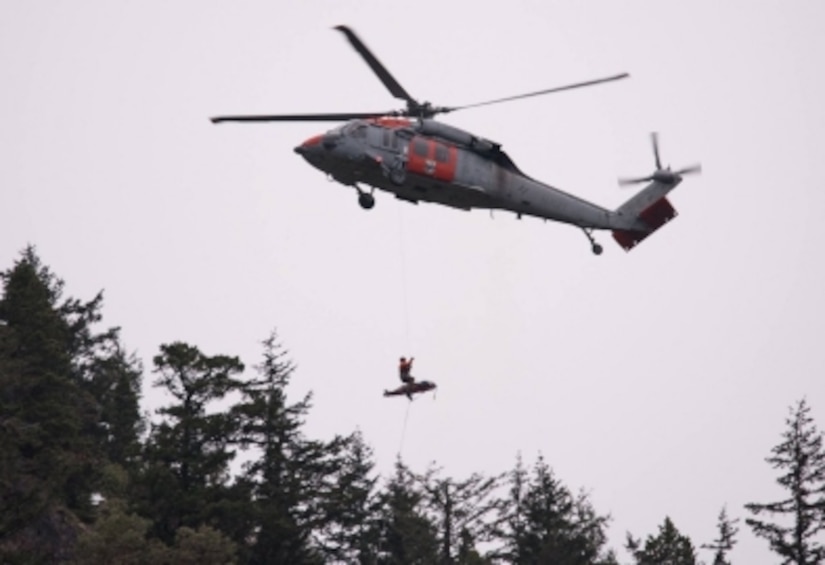By Navy Petty Officer 2nd Class Ignacio D. Perez, DoD News,
Defense Media Activity
WHIDBEY ISLAND, Wash. -- The smell of pine trees and the
peacefulness of rushing rivers in the high country is evident across much of
the state of Washington.
The region is a hiker’s dream.
However, this beautiful landscape has a potentially lethal
side that can claim the lives of even the most-experienced hikers. Luckily,
sailors from Naval Air Station Whidbey Island’s Search and Rescue team are on
24-hour duty.
Saving People
“Our job is to go out and save people, whether it's pulling
them out from the water or from the side of a mountain,” said Navy Lt. Chris
Pitcher, the air station’s SAR operations officer, “and we train almost every
day for those different scenarios. So when those scenarios do pop up, we're not
surprised, and we can get the job done and get that person to a higher level of
care."
Although the opportunity to be able to focus on saving lives
makes NAWSI SAR a choice assignment for most naval aircrew members and pilots,
the opportunity to live in an area like the Pacific Northwest makes the billet
just as coveted.
“This is definitely the place to be,” said aircrew member
Navy Petty Officer 2nd Class Cody Wall. “There’s just so much to do here if you
like being in the outdoors, whether it’s hiking, snowboarding, camping or
climbing. But it’s not just the area that makes this place nice. This is one of
the most fulfilling jobs I’ve ever had, whether it’s going out during a night
rescue or being able to fly over parts of Washington few people have ever been
to.”
The unit has performed rescues in Washington state’s
Cascades and Olympic National Parks, as well as in Idaho, Oregon and Canada.
Constant training is necessary, due to the region’s unforgiving terrain.
"The terrain here is pretty diverse,” Pitcher said. You
have mountain ranges that can have some of the densest forests with 200-foot
firs, to some the rockiest sheer cliff faces that you can imagine.”
Despite the harrowing flying conditions, many
search-and-rescue sailors say that when they look back at their careers, they
will consider their time at Whidbey to be some of the best years they have had.
"Looking back at my four years here, I'll tell you this
is the best command I've been at,” said Navy Chief Petty Officer Wayne
Papalski, a senior hospital corpsman. “It's just been an amazing and humbling
experience, getting to do what I got to do up here, and what some of my
brothers and sisters in the other room got to do to help people.”
Navy

No comments:
Post a Comment